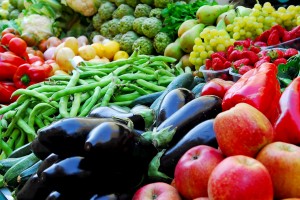86,149 women enrolled in the Nurses Health Study I (NHS I) and 94,715 women in the NHS II had been assessed on an ongoing basis with intermittent dietary questionnaires. This database was used for this study to see whether supplements would have made any difference in terms of stroke prevention. NHS I had 30 year of follow-up data while NHS II had 22 years of follow-up. During this time frame 3,780 strokes occurred. The researchers concentrated on the intake of mineral supplements like potassium, calcium and magnesium from food and from supplements (see reference below).
- When researchers compared the intake of potassium from food and supplements in women among the highest 20% of all participants, the risk of stroke was 11% lower than in the group of women with the lowest 20% of potassium intake.
- Similarly when the intake of magnesium was compared between the highest and the lowest 20% of intake (food and supplements together) the stroke risk was 13% lower in the highest intake group.
- A metaanalysis showed that there was a decrease of 2% of stroke risk for every 300 mg of calcium increase per day, a 13% decrease in stroke risk for 100mg of increase per day of magnesium and a 9% decrease in stroke risk for 1000mg of potassium increased per day.
It is important to keep in mind that by eating lots of vegetables potassium levels would be reached automatically because of the composition of these foods. Milk and milk products are generally rich in calcium. It may be helpful to supplement with chelated magnesium salts at 250mg twice per day, especially if magnesium rich foods are not consumed.
Conclusion
We are learning more and more how important natural food intake is (fresh vegetables and fruit), as important minerals are contained in it that often are co-factors in enzymatic chemical reactions inside our body cells. The less processed foods we eat, the better.
Reference: Am J Clin Nutr. 2015, May 6.
More info about strokes: https://nethealthbook.com/cardiovascular-disease/stroke-and-brain-aneurysm/ischemic-stroke/
More info regarding strke prevention: https://nethealthbook.com/cardiovascular-disease/stroke-and-brain-aneurysm/stroke-prevention/







